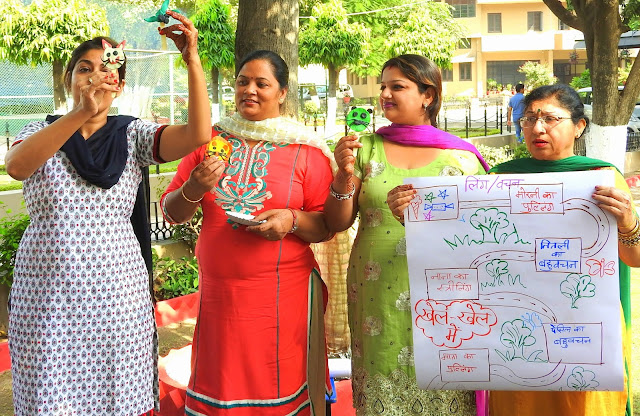Teachers As Lifelong Learners!!
Teaching is one of those
rare professions’ that keeps one’s brain young, allows continuing one’s own
journey as a student and a lifelong learner.
Teaching is a job that
encourages one’s own growth because to do it well requires one’s own continuous
enhancement. Teaching provides that environment where one encounters people of
different ethnicity and religions with different philosophies, learning
styles and backgrounds which in turn helps one to grow as a person.
Being a teacher allows
learning something new; immerse oneself in a distinct universe with each
project and so much more as-
-Each school year brings new people into one’s
life.
-Each unit and lesson
brings new perspectives.
-Each failure, when looked
at formatively, can help solve new problems.
-Each success, when used reflectively, can be even greater, the next time.
-Each success, when used reflectively, can be even greater, the next time.
Life and career experience
Teachers are influenced by what goes on in their lives, both on
a daily basis and over time. Their priorities and lives are therefore
important. Each teacher also experiences
their own individual career pattern that influences their desire and readiness
to engage in improvement activities.
Beliefs
Individuals’
perceptions and actions about changing and developing their teaching are highly
influenced by what they believe, as well as by their knowledge.
Emotional well-being
Daniel Goleman (1996) has argued that emotional intelligence
influences students’ self-concepts and motivation. But teaching is also full of
emotions. A school’s readiness for change is influenced by teachers’
psychological state. As valuing individuals as people and valuing their
contributions enhances teachers’ self-esteem and builds trust.
Knowledge
Another influence is the detailed and deep knowledge a teacher
has on general pedagogy( style of teaching) and pedagogical content, as well as their
subject discipline(s). This incorporates knowledge about each students’
strengths, weaknesses, home background, cultural experiences, and learning
styles. It also includes teachers’
understanding of how their “deep knowledge” interacts with the classroom
context; and a self-awareness, that enables them to be conscious of their own
thoughts, feelings, intentions and behaviours, and of other’s values.
Skills
As Bob Garmston and Bruce Wellman (1998) note, “Like the queen
on a chessboard, the teacher with the
most moves has the most options and the greatest degree of influence.” Individual
teachers are influenced by the extent of their repertoire of teaching
strategies and their ability to experiment with their own practice, by working
through a learning cycle of: activity, reflection and evaluation, extracting
meaning from a review and planning how to use the learning in future. In
particular, when teachers plan for students’ learning, their “bag of tricks”
includes tasks and processes to promote active learning, collaborative
learning, learner responsibility and learning about learning, and skills
related to handling relationships.
Motivation to learn
Motivation
is the starting point for learning. For a busy and often
overworked teacher to devote effort to change and new learning, there has to be a good reason for the
change: some sort of catalyst or urgency – a sense that “what I’m doing doesn’t
seem to be working”. Also, faced with a new teaching strategy, the teacher
needs to know it is practical and useful - “relevant to me in my classroom with
the students”.
Confidence that (s)he can make a real
difference
Confident teachers believe that what they do and can makes a
significant difference to their students’ progress and development at school
and lives beyond school.
Sense of interdependence
Teaching has been described as the second most private activity,
and yet the majority of humans are social animals with a need for connections,
relationships, and social support. While many teachers may express
individuality and choose, at times, to work and learn alone, some also see the
potential within groups, and know they are their work benefit from
collaboration.











